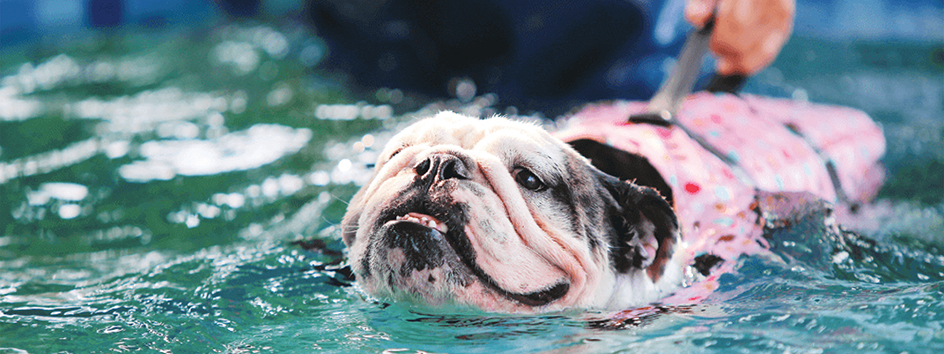By Kellie Tickner, Orchard Hills Veterinary Hospital Administrator
WHEN the summer sun blazes, a splash in the pool isn’t just refreshing for us but also for our water-loving canine companions. Whilst pool play can be fun and a fantastic way to keep your dog active, safety should always come first. Welcome to Pet Pool Safety 101!
Pool Access – Pets, like children, should only have supervised access to the pool. Even athletic dogs can overexert themselves, leading to potential danger. If you have a pool, ensure its securely fenced with a self-closing gate. Pool covers aren’t a substitute for fencing, as pets may mistake them for a solid surface, risking entanglement if they fall in.
Training – Proper pool safety training is essential. Start by equipping your dog with a well-fitted lifejacket, especially if they’re new to swimming or unsure in the water. Teach your dog where the pool steps are and practice guiding them to these points until they can reliably exit the pool independently. This skill allows them to rest as needed.
Supervision – Never leave your dog unsupervised during pool sessions. Watch for signs of fatigue, such as heavy panting or difficulty staying afloat. Help them out for breaks and provide fresh water to deter them from drinking chlorinated pool water, which can irritate the stomach.
Know Your Dog’s Limits – Swimming ability varies greatly by breed, age, and fitness level:
• Breeds: Retrievers are natural swimmers, whilst flat-faced breeds like Bulldogs often struggle.
• Age: Young dogs typically have more stamina than seniors.
• Fitness: Regular exercise builds endurance, but sedentary pets may tire quickly.
• Limit swim times to prevent exhaustion, and enforce rest if your pet appears fatigued.
Potential Problems – Be mindful of these poolside pitfalls:
• Hot pavement: Protect paws with booties or light-coloured rugs to avoid burns.
• Unexpected dunking: Watch for water inhalation, which can cause choking or pneumonia.
• Pool water ingestion: Chlorine and salt water can upset your pet’s stomach, cause dehydration, or even electrolyte imbalances.
• After swimming, rinse your dog thoroughly to remove chlorine and dry their ears to prevent infections.
With the right care and precautions, pool time can be a safe and joyous way to cool off and bond with your pet. For more summer pet safety tips, chat with the team at Orchard Hills Veterinary Hospital —let the fun begin!






